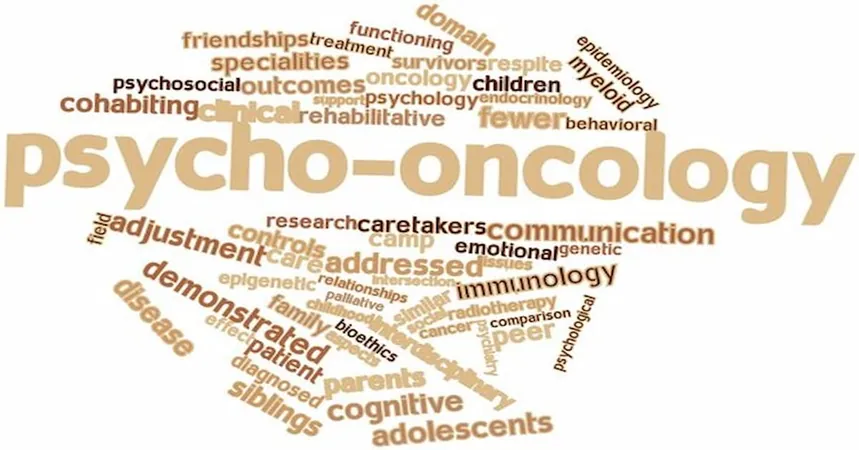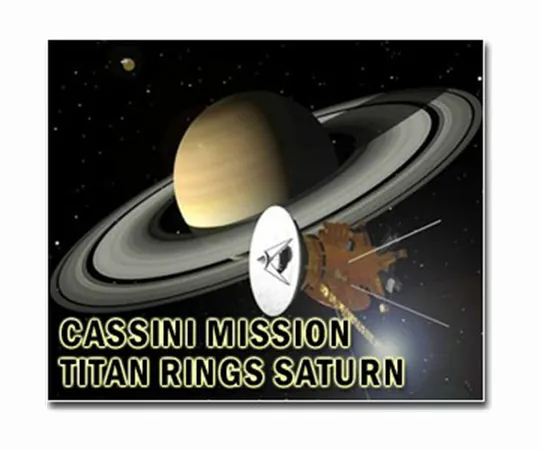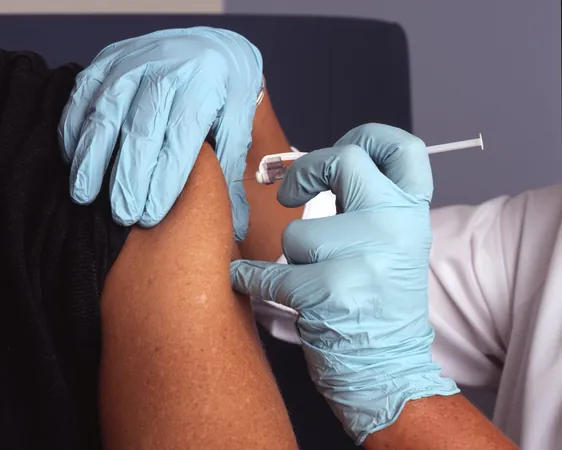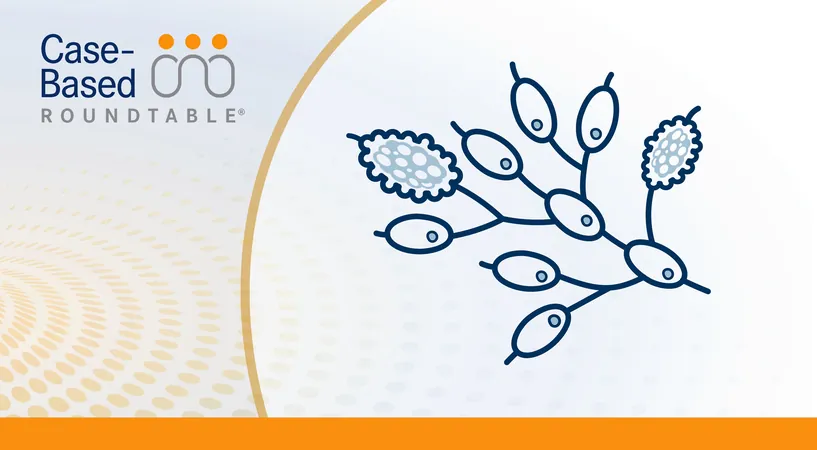
Championing Psychosocial Cancer Care: The Legacy of World Psycho-Oncology Day
2025-04-09
Author: Ming
The Heartfelt Message of Jimmie C. Holland, MD
Imagine sitting down with a compassionate expert who truly understands your struggles with cancer—this was the vision that Jimmie C. Holland, MD, articulated in her groundbreaking book, *The Human Side of Cancer: Living With Hope, Coping With Uncertainty*. Published in 2000, Holland conveyed her dedication to supporting cancer patients and their families as they navigated the emotional turmoil accompanying the disease.
A Trailblazer in Psycho-Oncology
Jimmie Holland didn't just scratch the surface; she revolutionized the approach to cancer care. Beginning in the 1970s, she challenged the prevailing belief that mere survival was sufficient for cancer patients. As the first chief of Psychiatry Service at Memorial Sloan Kettering Cancer Center, she carved a path for what is now recognized as psycho-oncology—a specialty focusing on the psychological and emotional facets of cancer experience.
World Psycho-Oncology Day: A Tribute to Progress
In 2025, the International Psycho-Oncology Society (IPOS) designated April 9th as World Psycho-Oncology Day (WPOD), honoring Holland's invaluable contributions while emphasizing the critical need for holistic patient care. With over 20 million cancer survivors projected in the US alone by 2026, the demand for robust psychosocial support is greater than ever.
Why Psychosocial Care Matters
Cancer patients face a staggering sixfold increase in psychological challenges compared to those without the disease. This alarming statistic underscores the necessity of psychosocial oncology, which addresses the emotional, behavioral, and social challenges that arise during treatment. Key issues include anxiety, depression, fatigue, and concerns about recurrence—all of which profoundly impact both quality of life and treatment outcomes.
Innovations in Care: The EMOTICON Study
Recent studies have spotlighted the importance of integrating emotional support into standard cancer treatments. For instance, the randomized EMOTICON trial explored emotional freedom techniques (EFT)—a form of acupressure—to mitigate cognitive impairments in cancer patients. Results revealed that those receiving immediate EFT therapy reported significant cognitive improvement, highlighting the profound connection between emotional health and treatment efficacy.
The Goals of World Psycho-Oncology Day
WPOD aims to elevate the visibility of psychosocial oncology and promote its integration into cancer care worldwide. Key objectives include raising global awareness, honoring Jimmie Holland’s legacy, engaging with various stakeholders, promoting actionable changes, and supporting fundraising initiatives for psycho-oncology projects.
Pathways for Growth: Expanding Access to Care
While psycho-oncology is gaining traction, significant opportunities for its expansion remain, particularly in accessibility. Telehealth options have emerged, facilitating psychosocial support regardless of geographical or physical constraints. A study presented at the 2025 APOS Meeting showed how telehealth interventions provided vital social support to adolescents and young adults navigating cancer.
A Vision for the Future of Cancer Care
As the field of psycho-oncology continues to evolve, ongoing research and conferences like the APOS Meeting are transforming how emotional and psychological factors are addressed in cancer treatment. By uniting psychosocial principles with conventional care, the future of oncology promises to empower not just patients but also their families, ensuring that no one faces cancer alone.




 Brasil (PT)
Brasil (PT)
 Canada (EN)
Canada (EN)
 Chile (ES)
Chile (ES)
 Česko (CS)
Česko (CS)
 대한민국 (KO)
대한민국 (KO)
 España (ES)
España (ES)
 France (FR)
France (FR)
 Hong Kong (EN)
Hong Kong (EN)
 Italia (IT)
Italia (IT)
 日本 (JA)
日本 (JA)
 Magyarország (HU)
Magyarország (HU)
 Norge (NO)
Norge (NO)
 Polska (PL)
Polska (PL)
 Schweiz (DE)
Schweiz (DE)
 Singapore (EN)
Singapore (EN)
 Sverige (SV)
Sverige (SV)
 Suomi (FI)
Suomi (FI)
 Türkiye (TR)
Türkiye (TR)
 الإمارات العربية المتحدة (AR)
الإمارات العربية المتحدة (AR)